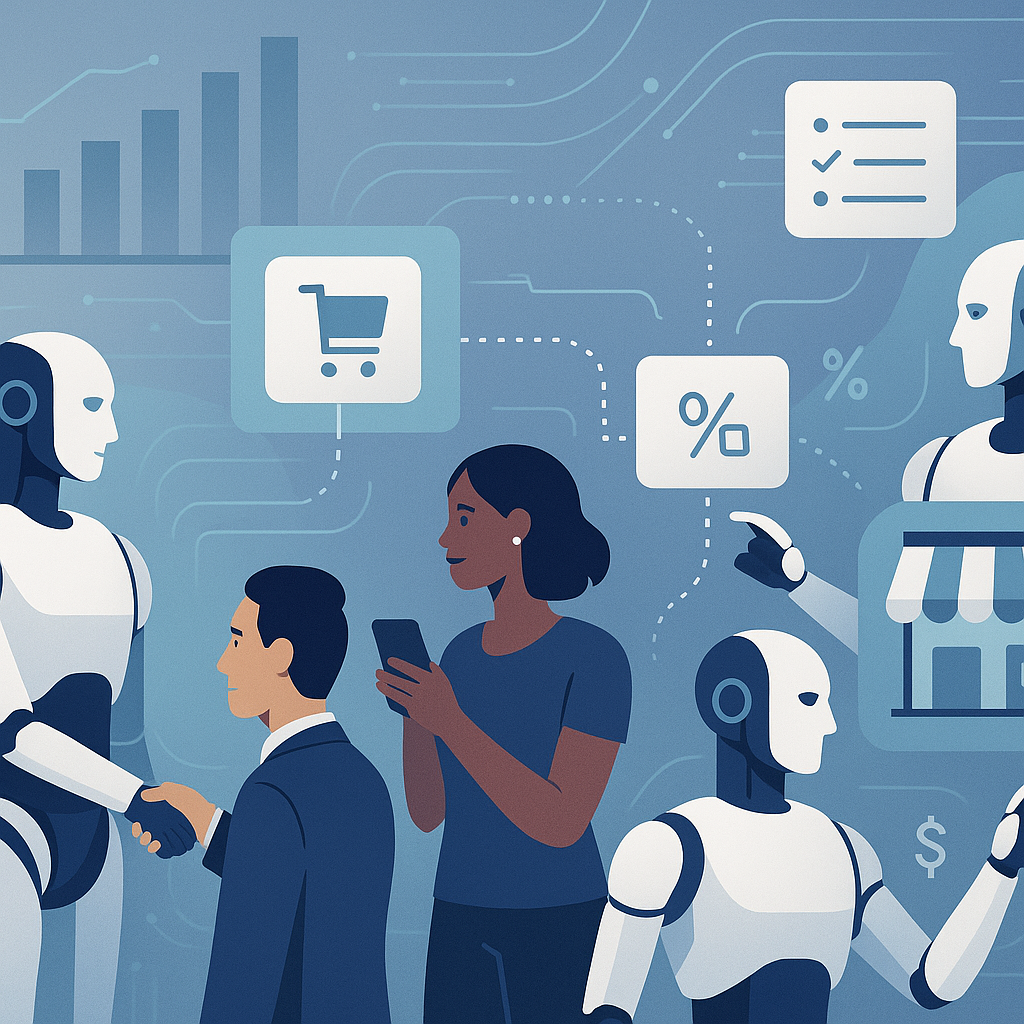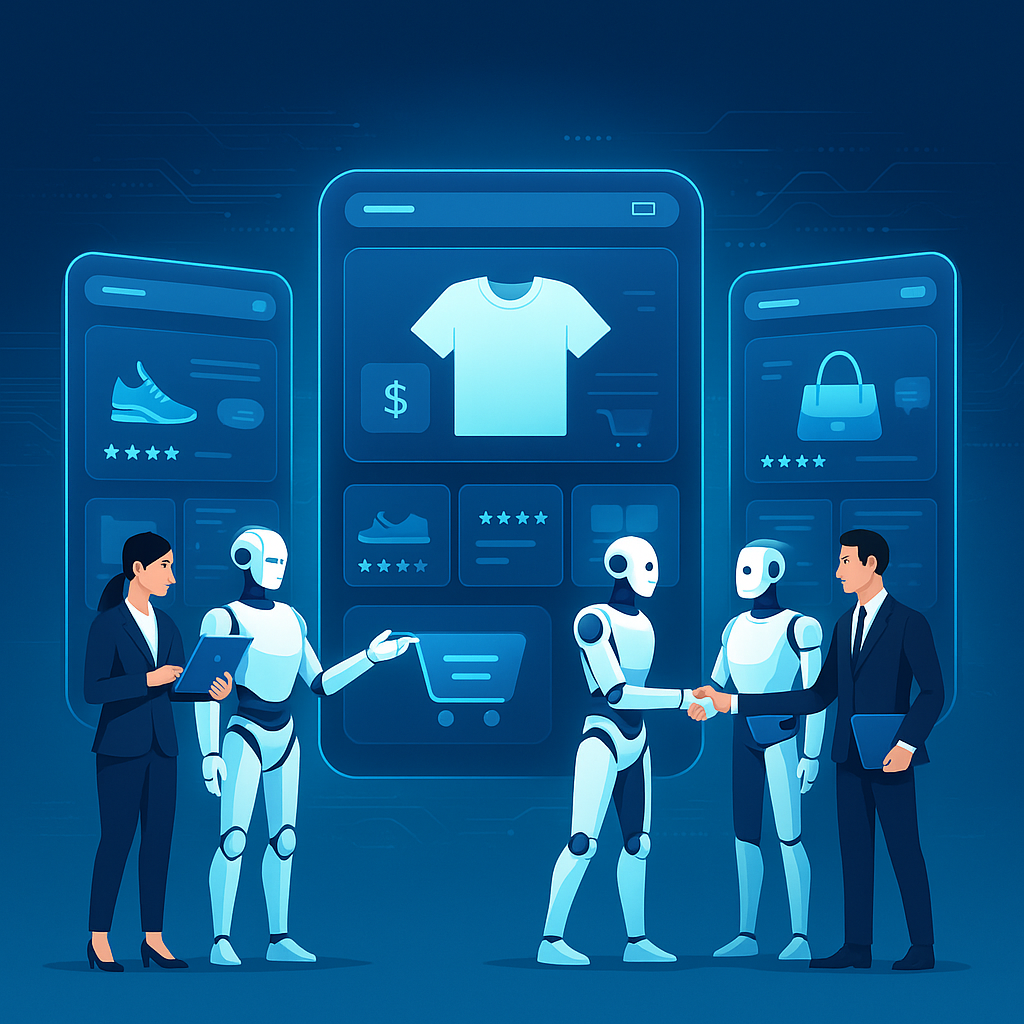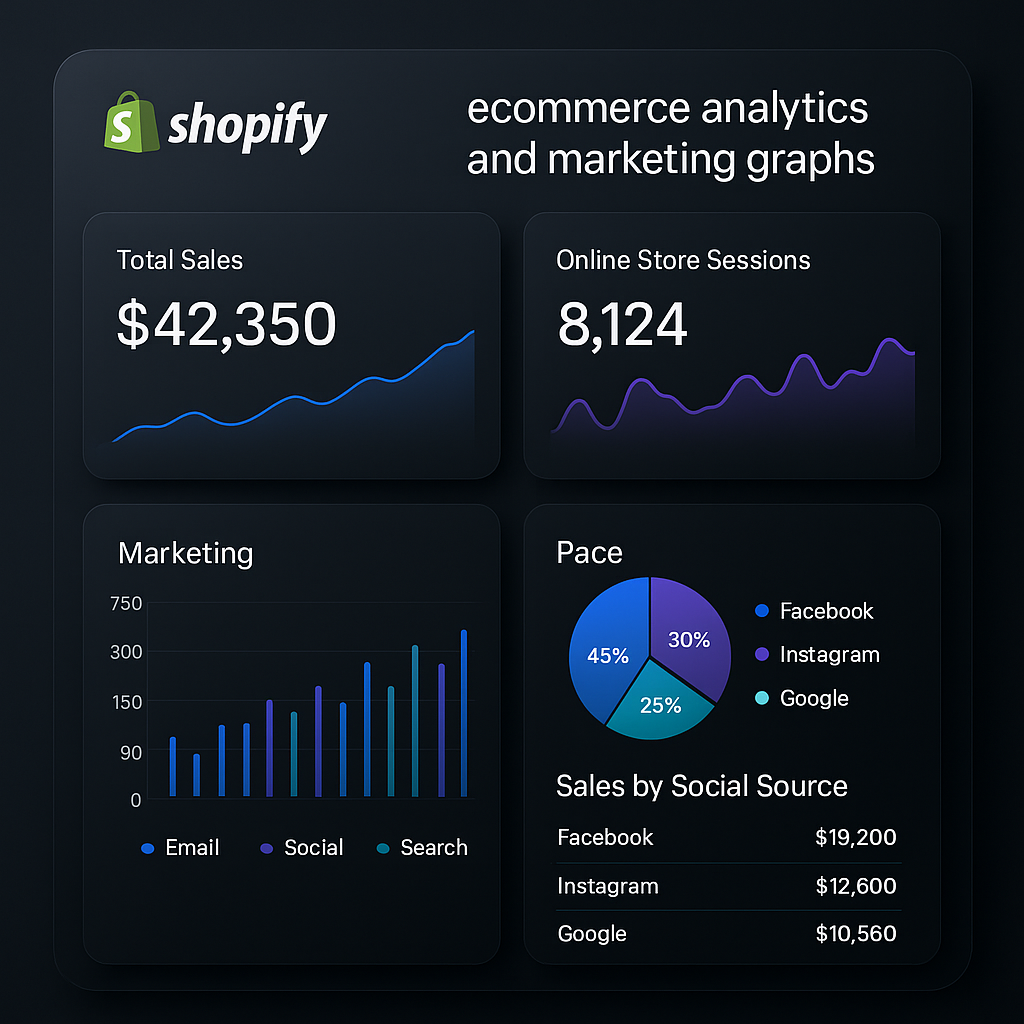
How AI Agents Are Transforming Customer Experience and Sales in Ecommerce
Introduction
The eCommerce landscape in 2025 is being profoundly transformed by artificial intelligence (AI) agents. These intelligent systems integrate seamlessly with ecommerce stores, driving personalized customer experiences and smarter sales strategies. Unlike simple chatbots of the past, modern AI agents operate autonomously across multiple channels, adapting quickly to customer needs and market dynamics.
Understanding AI Agents in Ecommerce
AI agents are software entities capable of perceiving their environment and acting autonomously to achieve specific goals. In ecommerce, this means they can interact with customers, analyze data, optimize marketing campaigns, and manage inventory with minimal human intervention. Their sophisticated algorithms and machine learning capabilities enable them to continuously learn from customer behaviors and preferences.
Types of AI Agents Used in Ecommerce Stores
Conversational AI Agents: Provide real-time, contextual customer support through chat and voice interfaces.
Recommendation Agents: Analyze browsing and purchase histories to suggest relevant products, increasing upsell and cross-sell potential.
Sales Optimization Agents: Automate pricing adjustments, promotions, and stock levels based on market trends and demand forecasting.
Revolutionizing Customer Experience
AI agents enhance customer experience by offering hyper-personalization and instant, intelligent support that matches or exceeds human interactions.
Hyper-Personalized Shopping Journeys
Rather than generic product lists, AI agents curate collections and offers tailored to individual customers based on their unique preferences, browsing patterns, and even subtle sentiment cues. For example, a customer browsing eco-friendly products may see a bespoke selection spotlighting sustainable brands, with agents dynamically updating these choices as new data emerges.
Proactive Support and Problem Resolution
Customer service AI agents anticipate issues before they arise. For instance, if an item in a shopping cart becomes out of stock, the agent can immediately suggest alternatives. In post-purchase phases, AI can detect shipping delays through integrated logistics data and notify customers proactively, maintaining transparency and trust.
Omnichannel Presence
AI agents operate cohesively across websites, mobile apps, social media, and voice assistants. This multichannel integration ensures consistent and convenient customer experiences regardless of how shoppers engage with the ecommerce store.
Driving Sales with AI Intelligence
Beyond improving interactions, AI agents actively generate new revenue opportunities for ecommerce stores.
Dynamic Pricing and Inventory Management
AI uses sales data and competitor analysis to adjust pricing in real time, maximizing profits while remaining competitive. Inventory AI agents forecast demand trends and automate restocking processes, reducing lost sales due to stockouts or overstocking.
Automated Marketing and Campaign Optimization
Marketing AI agents design, launch, and adjust campaigns based on customer segment behavior and seasonal trends. They optimize email sequences, social ads, and promotions, continuously improving conversion rates without manual oversight.
Personalized Cross-Selling and Upselling
By analyzing a shopper’s cart contents and purchase history, AI agents recommend complementary products that customers are likely to buy, enhancing average order value. These recommendations employ natural language generation to create compelling product descriptions and calls to action.
Real-World Examples
Several ecommerce stores have pioneered using AI agents to achieve impressive results:
StyleAura, an apparel retailer, implemented conversational AI agents that increased their customer satisfaction scores by 40%, while boosting repeat purchases through personalized style recommendations.
EcoHome Goods deployed AI pricing agents tracking competitor inventory across platforms, leading to a 15% rise in sales during peak seasons without sacrificing margins.
GourmetProvisions, a niche food ecommerce site, uses AI automated emails triggered by AI-generated product affinities, causing a 25% increase in upsell revenue over six months.
Challenges and Considerations
While AI agents offer tremendous opportunities, ecommerce businesses must navigate certain challenges:
Data Privacy: Collecting and using customer data requires transparency and compliance with privacy regulations to maintain customer trust.
Integration Complexity: Deploying AI agents effectively demands seamless integration with existing ecommerce platforms and backend systems.
Balancing Automation and Human Touch: Over-automation risks alienating customers who prefer human assistance in complex scenarios.
The Future of AI Agents in Ecommerce Stores
Looking ahead, AI agents will become even more proactive and autonomous. Advances in natural language understanding, emotion recognition, and contextual awareness will create deeply engaging and empathetic shopping experiences. AI agents may evolve into virtual personal shoppers that accompany customers throughout their entire decision journey, blurring the line between online and offline retail.
Moreover, the integration of AI agents with emerging technologies such as augmented reality (AR) and virtual reality (VR) could revolutionize product discovery and demonstration, enabling immersive, interactive ecommerce environments.
Conclusion
AI agents have emerged as a transformative force in ecommerce stores, redefining customer experience and sales with intelligent personalization, automation, and data-driven strategies. As these technologies mature through 2025 and beyond, they promise to create more responsive, efficient, and satisfying online shopping ecosystems—benefiting businesses and consumers alike.






